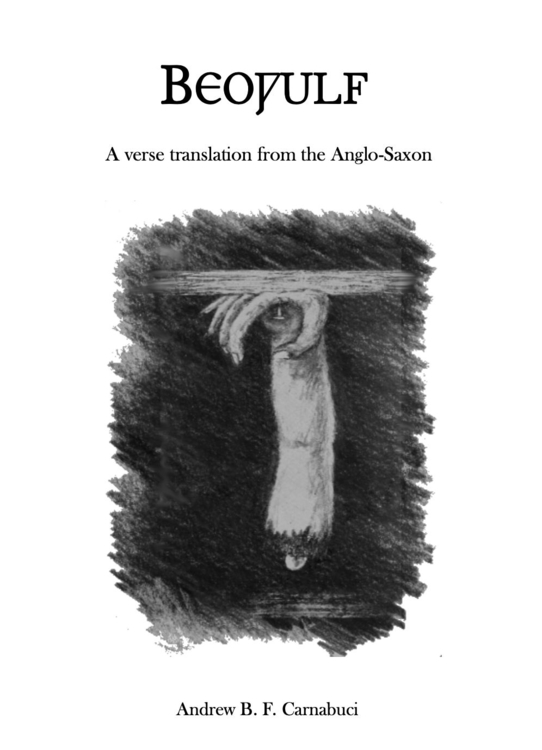
More than 1,000 years after the epic poem of Beowulf was first penned, Andrew B. F. Carnabuci continues a long tradition of demystification and offers up his own take with Beowulf: A Verse Translation from the Anglo-Saxon.
What remains unchanged in this accessible and unbiased translation is the story itself: the tragic and triumphant life of Beowulf, a great Scandinavian warrior whose bravery and leadership has become the stuff of legend. Beginning with his youthful battles in Denmark against the infamous monster Grendel, and Grendel’s even more malevolent mother, it doesn’t take long for the Beowulf to demonstrate his seemingly superhuman abilities.
Whether it is tearing off Grendel’s arm, beheading Grendel’s mother with a sword made for giants, or single-handedly doing battle with a fearsome dragon well into his old age, there is a reason this timeless character has become a model of literary heroes for centuries. Despite the length of this poem, the well-known story remains gripping, with visceral battles, memorable allies, inspiring speeches, and grand achievements.
Following on from interpretations and studies of this heroic-elegiac poem, including the opinion of J.R.R. Tolkien, Carnabuci embraces the dirge-like quality of this work. He doesn’t shy away from the underlying theme that pervades from start to finish – the inevitability of death, and the encroachment of sorrow upon our internal worlds. Unlike other translations, which attempt to add layers of racial, cultural, or religious significance, this version focuses on the existential aspects of the story, making it more universal, engaging, and entertaining.
For those unfamiliar with the long tradition of this epic poem, and the controversies that have erupted over different translations throughout the centuries, Carnabuci acts as both historian and linguist. He explicates the age-old journey of this text in a thorough introduction, and offers a complete bibliography, as well as royal pedigrees to add historical context to the tale.
The differences in language choice are noticeable in this version, as is the flow and pace of the verse, but at some points, the rhythm and cadence feel jarring or somewhat awkward. However, this may be a necessary sacrifice in order to improve clarity of meaning. As such, there is less guesswork in terms of the intention of each line, yet the verse still maintains the classic tone of epic poetry and older forms of English.
The alliterative nature of Beowulf has long been considered one of its greatest achievements, and Carnabuci maintains that linguistic flair: Nor was anyone vigorous with the vain hope of needful / Rescue from the murderous marauder / But the fearsome fiend lurked everlong in frightful darkness. The seemingly high-brow language becomes easy to understand quite quickly, similar to the increased ease of comprehending Shakespeare after immersing oneself for a few scenes.
Promoting strong messages of brotherhood and heroism, cautioning against the fatal danger of pride, and reminding readers of the fleeting uncertainty of life, this new verse translation is both poignant and powerful. Carnabuci demonstrates a subtle interpretive pen, a deep reverence for the original text, and a penchant for poetic pacing that makes this latest version a pleasure to read.
Book Links
STAR RATING
Design
Content
Editing
Get an Editorial Review | Get Amazon Sales & Reviews | Get Edited | Get Beta Readers | Enter the SPR Book Awards | Other Marketing Services























Leave A Comment